While settler leaders quickly denounced fatal 2015 firebombing of Palestinian home, declining faith in the Shin Bet may have kept many moderates silent on Aisha Rabi’s 2018 death
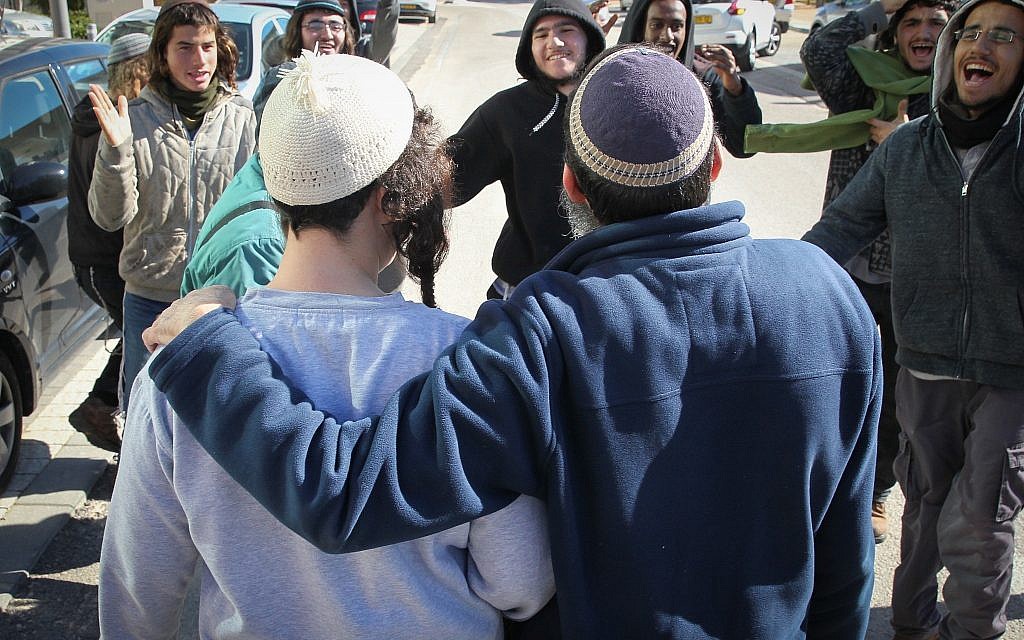
Not even a day passed after the July 2015 firebombing of two homes in the Palestinian village of Duma before condemnations came flooding in from settler leaders as well as the broader Israeli right.
The Yesha settlement umbrella council released a statement the next morning expressing “shock and disgust” at the nighttime attack, in which parents Riham and Sa’ad Dawabshe were burned to death along with their infant son Ali.
“As the leaders of the settlement movement in Judea and Samaria, we wish strength to the security forces in their pursuit of the criminals and hope that they will soon be apprehended and punished to the fullest extent,” the Yesha Council said, referring to the West Bank by its biblical names.
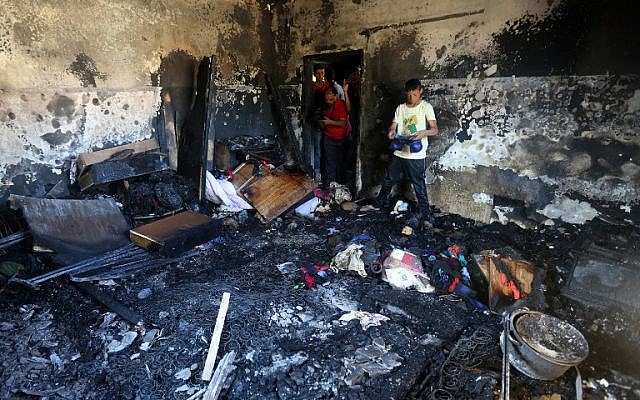
“Terrorism is terrorism is terrorism. We will catch the murderers and bring them to justice,” Netanyahu told reporters as he exited the hospital, declaring that the state would not treat the case differently from any other simply because it believed the suspects were Jewish.
Four and a half years later, another jarring attack took place in the northern West Bank that has security officials once again looking at young Israeli settlers as the perpetrators.
Aisha Rabi was driving with her husband and daughter near the Tapuah Junction on October 12 when a large stone crashed through the windshield and struck her in the head. She was pronounced dead at a Nablus-area clinic a short time later.
But contrary to the Duma attack, settlers leaders and the broader Israeli right initially reacted to the murder of the 47-year-old Palestinian mother of eight by not responding at all.
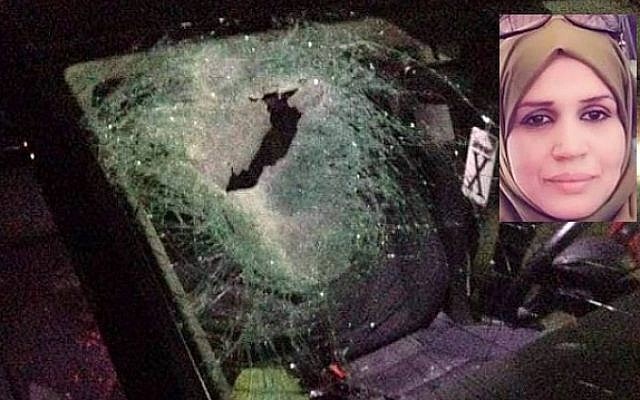
A car belonging to a Palestinian couple is seen after it was involved in a deadly crash reportedly due to stone-throwing by Israeli settlers at the Tapuah Junction in the northern West Bank on October 12, 2018. (Zachariah Sadeh/Rabbis for Human Rights); Aisha Muhammad Talal Rabi (Courtesy)
As the case developed and authorities arrested five students from the Pri Haaretz yeshiva, a number of lawmakers, West Bank council chairmen, and religious leaders did speak out. But they used their podiums to condemn the Shin Bet security service over its handling of the investigation.
“I want to make it clear that we will not sit on the sidelines while our rights are being violated,” said Samaria Regional Council chairman Yossi Dagan at a protest outside the Prime Minister’s Residence in Jerusalem earlier this month. “We will not stand to the side as they torture our children and deny them their rights,” he added, criticizing the security agency’s barring of the five suspects from meeting with their attorneys. (Those orders have since been lifted.)
In addition to the demonstration, dozens of rabbis from the national religious camp signed a letter criticizing the Shin Bet, while others endorsed an ex post facto religious ruling green-lighting the decision by a group of far-right activists to drive on the Sabbath in order to coach Pri Haaretz students on how best to withstand the security agency’s interrogations.
Last week, Justice Minister Ayelet Shaked met with the families of the murder suspects (as she also did following the Duma attack) and one Likud lawmaker compared the Shin Bet activities vis a vis the Israeli teens to that of the notorious Soviet KGB.
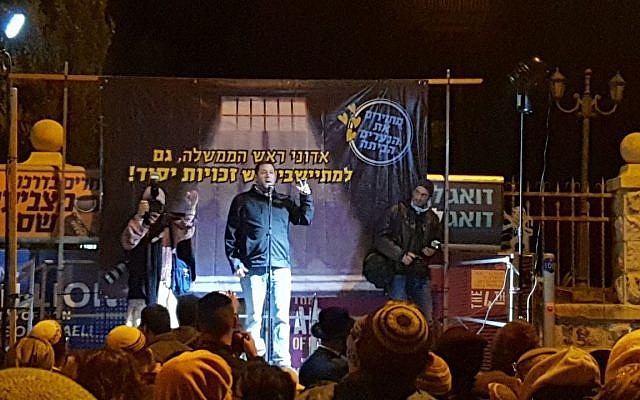
samaria Regional Council chairman Yossi Dagan speaks during a protest outside the Prime Minister’s Residence in Jerusalem, in support of the Jewish youth suspects in a major security probe whose details are under gag order, January 5, 2019 (Roy Hadi)
All together, the responses appeared to signify a marked about-face in attitude toward Jewish terror from the settlement movement and its supporters.
Lack of backing
Former Shin Bet agent Dvir Kariv argues that the reasoning behind the ostensible shift in reaction he two incidents is twofold.
“The burning of a family seemed to have brought more people to issue a condemnation, as opposed to a stoning, which is something that happens on a daily basis in the territories” against Jewish drivers, explained Kariv.
“Secondly, and perhaps more essentially, is that we’re currently on the eve of elections,” he pointed out, suggesting that pro-settler members of the government are wary of losing the support of certain constituents by speaking out against such violence.
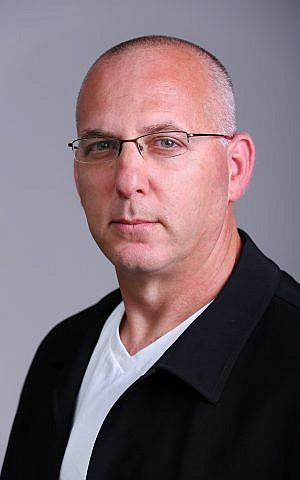
The former Shin Bet official took particular issue with the latter reason, saying the fear of losing votes was preventing the broader Israeli right not only from condemning violence but also from backing the security agency.
“We have a unit in the Shin Bet which is protecting Israeli democracy,” he said of the Shin Bet’s non-Arab terror prevention unit, more colloquially known as the Jewish Division. Kariv, 50, served in the branch from 1994 to 2012.
“Employees of the Prime Minister’s Office aren’t receiving backing against a brutal incitement campaign, which falsely accuses agents of torturing and abusing Jews… It is unacceptable,” he said.
Kariv acknowledged that Netanyahu did come to the Shin Bet’s defense after over a week of criticism from right-wing activists.
The prime minister praised the organization last week for its capture of a suspected Palestinian terrorist. He called the agency the “best terror-thwarting organization in the world” and asserted in a tweet that “there is no place for attacks on it.”
But Kariv referred to Netanyahu’s backing as “half a sentence.”
“When someone really wants to show their support, they release a statement that sounds like a serious backing. Not a sentence that requires you to read between the lines,” the former Shin Bet agent argued.
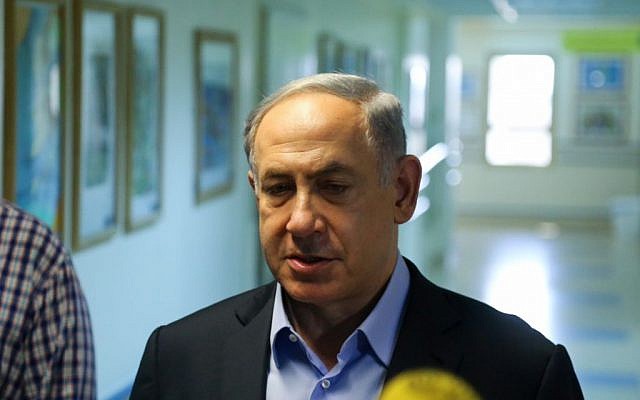
Asked why he felt it was necessary for members of the Israeli right to speak out on the matter, Kariv argued that doing so could prevent youth from the moderate right from falling into the hands of extremists on the far-right.
The former Jewish Division agent clarified that he considers the settlement movement as “part of the moderate right camp, which is statesmanlike, democratic and loves this country.”
“But they have made a mistake in avoiding condemning the far-right, which is anti-Zionist and anti-democratic,” Kariv said, pointing out that the protests against the Shin Bet’s conduct have referred to the suspects as “our children.”
While he acknowledged that there is a considerable difference between failing to condemn the far-right’s violence and actively endorsing it, Kariv argued that the silence from settler leaders and their supporters risks “legitimizing such actions.”
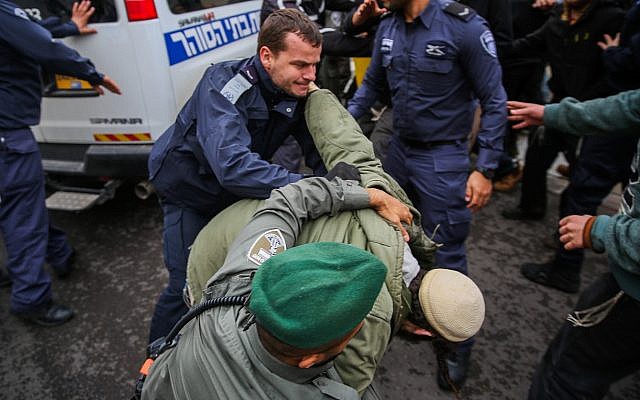
It’s not us, it’s them
One religious leader who appeared to recognize that risk was Rabbi Yaakov Meidan, the co-head of the esteemed Har Etzion yeshiva in the Alon Shvut settlement.
In a lesson he gave at the seminary last week, Meidan told his students that he had been approached by a local TV channel to be interviewed on whether he thought it was permissible for the far-right activists to drive on the Sabbath to Pri Haaretz in order to coach the suspects in Rabi’s death on how to withstand Shin Bet interrogations.
“Everyone is talking about whether what the Shin Bet did is okay or not,” Meidan said regarding the interview request. “But I do not hear any such shouts regarding an Arab woman… a mother of (eight) children, who was killed by a stone thrown, also on the Sabbath.”
In a Tuesday interview with The Times of Israel, Meidan said he found it necessary to speak out on the matter, despite the fact that it has not yet been fully proven that Jews are responsible for Rabi’s death.
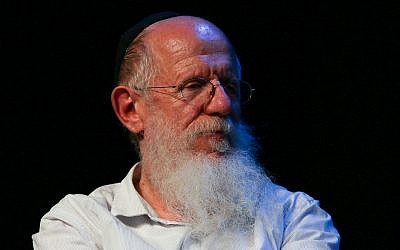
“If I, as an educator, am silent, it could end up being interpreted as if (I think) it’s not that horrible that an Arab woman was killed — when I happen to think that it is horrible,” he explained.
Pressed as to why he thought so few of his colleagues were condemning the incident as he had, Meidan maintained that the entire national religious camp “completely opposes this kind of murderous act.”
However, “as long as the facts are not made clear, many feel that they don’t want to make a bad name for the Jewish people,” the rabbi explained.
Meidan added that the need to speak out was made clear to him following last week’s protest in front of the Prime Minister’s Residence. He said he identified with the aim of the demonstration, but still felt its organizers failed to voice their objection to Rabi’s murder in the same breath as their objection to the Shin Bet’s alleged mistreatment of the suspects.
He suggested that the Shin Bet also had a role to play in his camp’s hesitation to denounce Rabi’s murder with the same conviction it had following the Duma attack.
Meidan pointed to the Shin Bet’s failure to obtain a conviction in the Duma case, which is still ongoing. In June, the Lod District Court threw out a series of confessions given by the alleged accomplice in the Dawabshe murders that were extracted under extreme physical duress by Shin Bet interrogators. The court subsequently agreed to release the Israeli teen to house arrest.
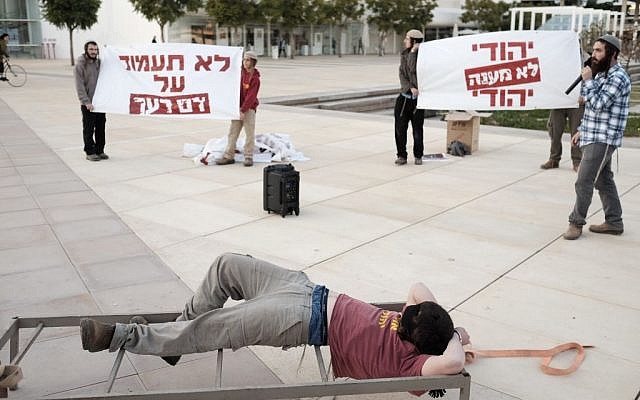
“People have begun to lose their faith in law enforcement when they accuse someone,” said Meidan in reference to the court decision.
Earlier this month, the Lod District Court handed down a similar ruling in throwing out confessions given under extreme duress by a Jewish far-right activist accused of vandalizing a prominent Jerusalem church.
Efrat Local Council chairman Oded Revivi makes a similar point.
“The Shin Bet is in a problematic situation where since Duma there have two different incidents [in which] they did not receive backing from the courts. And it raises doubts [as to] whether what [the Shin Bet says] happened [in Rabi’s case] is really true or not,” Revivi told The Times of Israel.
Nonetheless, he said incidents such as Rabi’s death warrant condemnation. The Efrat mayor did not release a public statement doing so, but he did tweet a link to an article he wrote in December 2015 calling on the public to back the Shin Bet in its investigation of the Duma attack.
For his part, Kariv largely dismissed the possibility that the recent court decisions were the cause of settler leaders and the broader Israeli right refraining from both condemning Rabi’s murder and backing the Shin Bet’s efforts to bring those responsible to justice.
“It’s possible these things influenced at a small level. But not principally,” the ex-Shin Bet agent argued.
Kariv acknowledged that the security agency has made mistakes in the past, but he said that the recent ruling has more than anything else likely influenced investigators to “stay within the bounds permitted by the court.”
Moreover, he argued that officials in the national religious camp should be able to give sacred state institutions such as the Shin Bet the benefit of the doubt.
Whether settler leaders and the broader Israeli right will be able to do so will likely depend on how the investigation into Rabi’s death plays out.
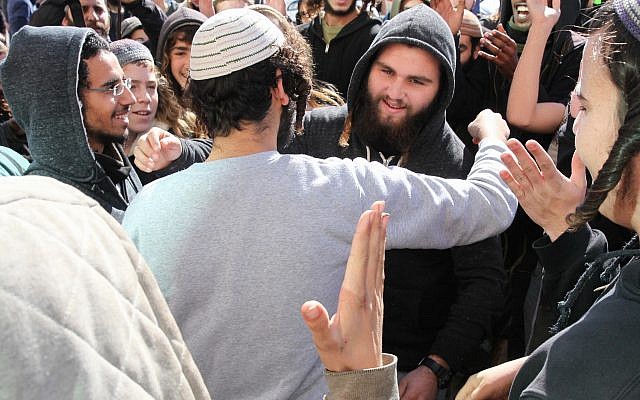
On Tuesday, state prosecutors announced that they intend to submit an indictment against the prime suspect in the coming days.
But if the case drags out in a similar nature to the ongoing Duma probe, the list of officials and public figures willing to stand up for the Shin Bet could shrink even further.

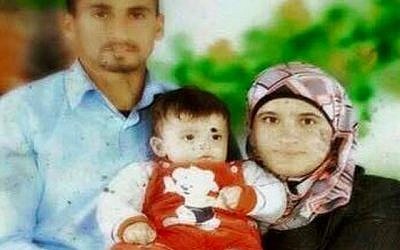


The Shabak released a public statement accusing the four youths, by name, of Ms. Rabi’s murder. But they released absolutely no evidence of their guilt. Proper police work requires that one keeps the names of suspects confidential until it is possible to simultaneously release at least some of the evidence against them.
@ LtCol Howard: Excellent points.
This from JTA on the case of the 16 year old boy accused of vandalising a Jewusalem church, and subjected to mental torture and threats bt the Shin Bet:
Haaretz has a longer article on this subject, but I refuse to subscribe to Haaretz and am denied access to it s articles. Ted, could you copy the Harraretz article on the Dormition Abbey case and reprint it for Israpundit readers?
“For his part, Kariv largely dismissed…” No I believe that the settlor community learned their lesson to not automatically condemn supposed “Jewish terrorists” until the facts are known Kariv’s attitude assures that the security agencies will never clean up their act. Where is the punishment for those who brutalized the youth obtain forced confessions?
There s another facet to both cases…. the Duma one and ths present ongoing affair.. The Duma matter seemed to show that there was a deliberate attempt to kill or harm the people living in the house, which is not a normal intent from tyre slashers and graffiti daubers,. ( also many indications of an inter-Arab feud) The stone throwing death can be classed as accidental, because in the vast, vast majority of cases, death and even injury, is not the result.
As the article notes, Arabs stone Jewish cars daily.